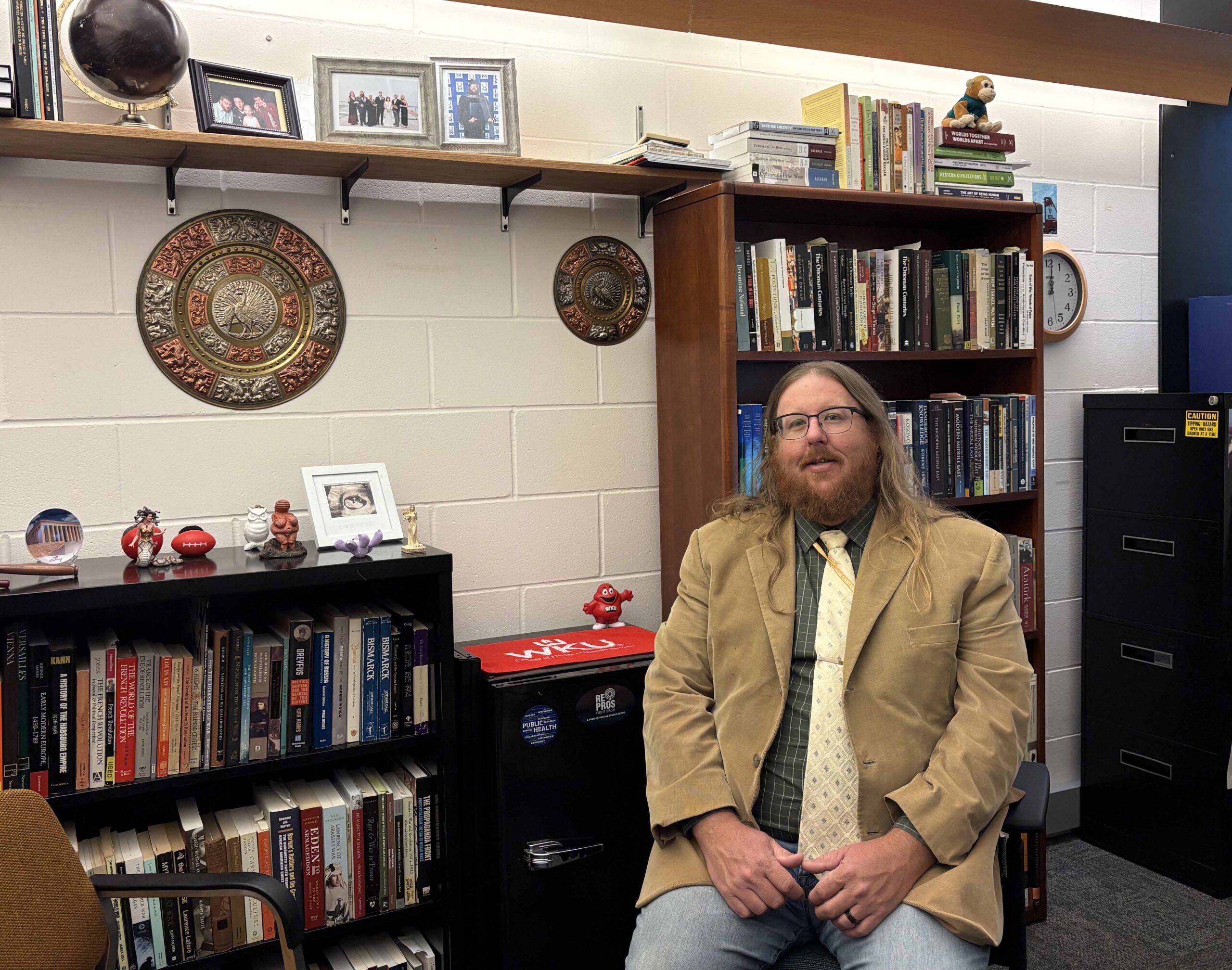SILVER CITY, NM—When Nick Rummell first began his graduate studies at WNMU, he expected to be working toward a master’s degree in Interdisciplinary Studies. “I already had a master’s in history, and I had been teaching at the community college level for about ten years,” he explained. After two semesters at WNMU, though, a new position teaching at a community college in Tennessee sent him in a new direction. “They offered free tuition at an in-state school, so I left [WNMU] and went to the University of Memphis, and I completed my doctorate of liberal studies there,” said Rummell.
This past January, though, Rummell decided to return to WNMU for a graduate certificate in Political Science. Working with Associate Professor Joel Blaxland, Rummell not only completed the needed coursework but also had a chance to engage in an in-depth research project, thanks to a research assistantship funded by a Student Research and Professional Development grant.
“We were examining why Afghan civilians either do or do not protest against the Taliban after the U.S. withdrawal,” said Rummell of the research. Blaxland, he explained “realized that most of the rural population would not rebel against the Taliban, whereas the urban population would. We were trying to key in on some of the reasons why.”
“Our tentative conclusion is that basically the Taliban leaves the rural people to do their own thing,” explained Rummell. “The urban population is the group more affected by the U.S. intervention, by foreign aid, and the rural people really did not get a lot of that. The rural Afghans are very pragmatic. As long as they are allowed to work their fields and grow their crops, they don’t really care who is in charge.”
Rummell said that he expects his coursework at WNMU and his research with Blaxland to have a strong impact on his new role as an Assistant Professor of History and Political Science at Illinois Central College, a position he accepted this summer. “I have taught history for 16 years, but this is my first time teaching political science,” he said.
Rummell added that the research assistantship not only provided him with examples to use in his teaching but also gave him a more thorough appreciation of how data is used by political scientists. “Getting to see how the data is used and how it can be interpreted really was helpful,” he said.
The mentorship Blaxland has provided has been invaluable, said Rummell. “He has been one of the most helpful professors I have ever had. … When I started taking his classes five years ago, he knew that I had already been teaching for ten years, and he definitely treated me like a colleague.”
That collegial relationship is one that Rummell plans to sustain as he launches into the next phase of his career.
“While the assistantship was just for the summer,” he said, “we will probably keep working on this project for another year. … I look forward to hopefully getting a publication out of it, which would be my first political science publication as a coauthor.”




